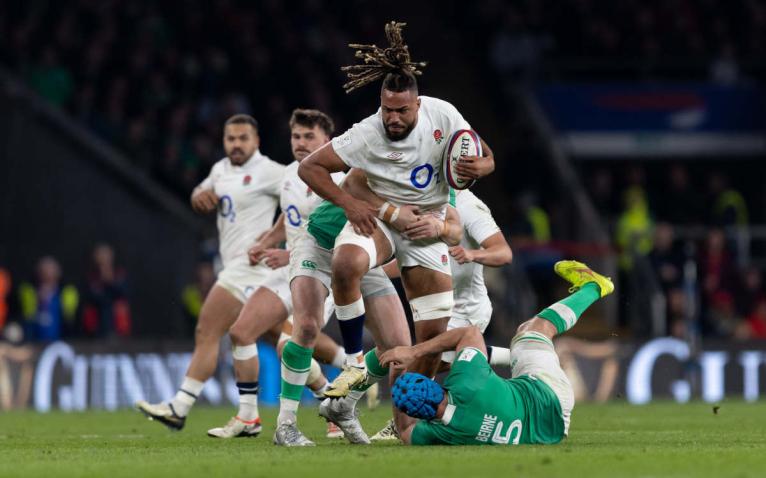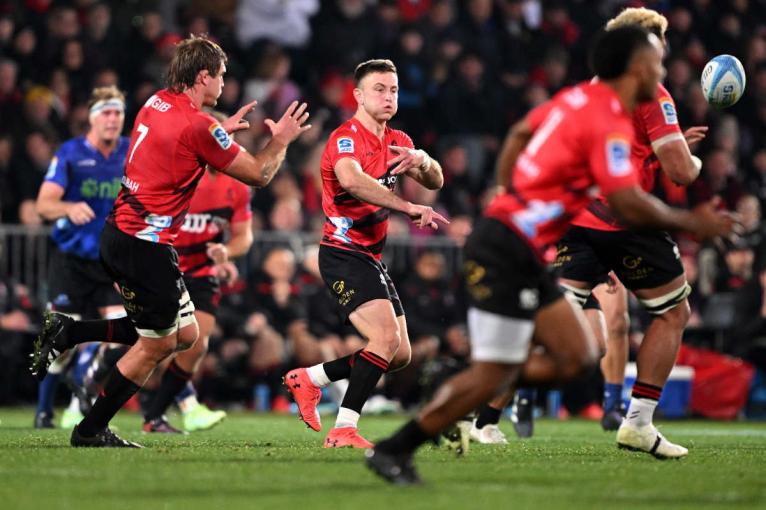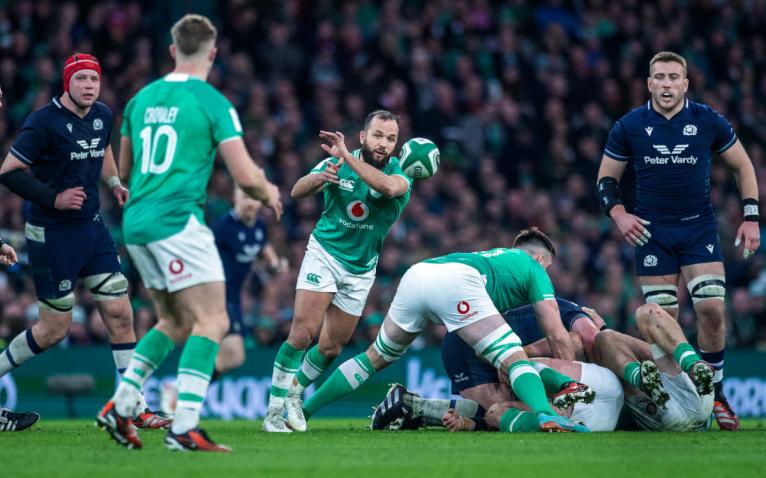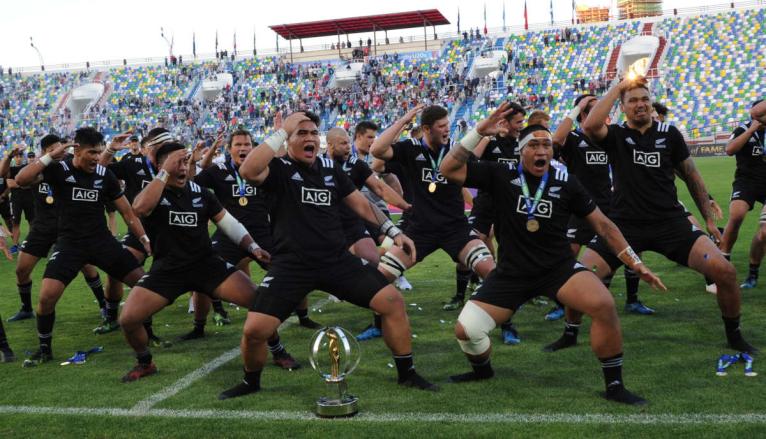Now that the Super Rugby season has ended, New Zealand’s clubs can get on with the challenging business of working out who from their current squads is staying and who has been tempted offshore.
This is the endless game which New Zealand’s clubs must play because it is a relentless battle to keep players in a country with limited means to do so.
Almost every commercial decision NZR makes is designed to generate the cash it needs to persuade the best players to turn down the big money offers that keep rolling in from overseas club in Europe and Japan.
The primary reason NZR took private equity investment from US fund manager Silver Lake, was so it could generate more money to throw at the best players and to ensure the All Blacks continue to be successful.
But this one-dimensional plan is not working. NZR is burning through the cash to sustain this model and after posting a $47m loss in 2022, it announced last week that it lost a further $9m in 2023.
Not only is the balance sheet not coping with this plan, but the annual outflow of talent continues to be significant.

England have arrived in New Zealand with two men – Chandler Cunningham-South and Ethan Roots – who for one reason or another, were rejected by the Kiwi system.
And they are hardly unique in this – as around the world there are New Zealanders playing for other nations – men such as Bundee Aki, Jamison Gibson-Park, James Lowe and Uini Atonio.
New Zealand is trying but failing to keep its best players and there will be more leaving. This year it has already been confirmed that Hurricanes No 10 Aidan Morgan is off to Ulster, Crusaders No 10 Fergus Burke will be joining Saracens, Hurricanes wing Josh Moorby is heading to Montpellier, and Akira Ioane is off to Japan.
There will be plenty more impending departures announced in the coming weeks and there is a growing sense that NZR is misreading the player market – and that it is applying a one-dimensional strategy that is fixated on the false premise that money alone will solve the problem.
There is another significant factor that makes New Zealand vulnerable to offshore predators – its colonial past, and it’s now mostly true that players are leaving to chase an opportunity to play international rugby.
But this one-way traffic flow is not just about money. Not all Kiwis are leaving New Zealand in search of better pay.
There is another significant factor that makes New Zealand vulnerable to offshore predators – its colonial past, and it’s now mostly true that players are leaving to chase an opportunity to play international rugby.
Morgan is eligible for Ireland and so Ulster have been able to lure him with a significant salary bump and the possibility that he could, at just 22, potentially carve out a long test career.
It’s much the same for Burke, who is eligible for England through his mother and for Scotland on account of his grandparents.
Gregor Townsend had previously tried to persuade Burke to join Glasgow, so it seems certain that he’s very much on Scotland’s radar already.
“I think the short answer is that it is probably not just about the money,” Crusaders chief executive Colin Mainsbridge said of Burke.

“They [Saracens] have been clear to him about what his aspirations could be and so it is not just about the money.
“Fergus is eligible for three nations, ourselves [New Zealand], England and Scotland and we are disappointed to see him go.
“We understand completely that when you are eligible for three countries it makes your decision-making more complex.”
Ioane was born in Japan and having not played for the All Blacks since 2022, he’d become eligible for them by 2025.
One of the great strengths of Scotland and Ireland, is their diaspora and both the Celtic nations are brilliant at keeping tabs on who is eligible to play for them and they have cleverly and strategically recruited New Zealanders, Australians and South Africans
He’s also qualified to play for Samoa, through his father Eddie who was part of the 1991 World Cup squad.
One of the great strengths of Scotland and Ireland, is their diaspora and both the Celtic nations are brilliant at keeping tabs on who is eligible to play for them and they have cleverly and strategically recruited New Zealanders, Australians and South Africans on the promise that test caps could be – almost immediately – in the offing.
So too – and this applies equally to England, France, Wales and Japan – have their national sides benefitted from the recruitment strategies of their clubs.

The clubs use their budgets to sign foreign players and if they stay for long enough, they become eligible through residency – a route to international rugby that the likes of Aki, Gibson-Park, Lowe, JP Nel, Duhan Van der Merwe and Pierre Schoeman have all taken.
But however commonplace this is in the North, these two recruitment strategies are anathema to New Zealand, where the focus is exclusively on developing homegrown talent and tracking only those who have come through the domestic system.
The Six Nations are using all available routes to strengthen their squads and build their playing depth, but New Zealand is relying entirely on its own system to produce and retain enough players, and the refusal to look beyond its own shores for talent is hurting Super Rugby, the All Blacks and the balance sheet.
In recent weeks, NZR wrote to its provincial unions informing them that it was in the process of reviewing talent identification and development programmes because they needed to fix multiple faults with the system.
This reluctance to consider recruiting players from offshore to build a two-way traffic flow in and out of the country, is driven by what is possibly another misguided notion New Zealand’s player development system is the best in the world and there is nothing to be gained by bringing in players with experience in other programmes.
If this was ever true, it no longer is given the way the once all-conquering New Zealand Under-20 team has struggled on the global stage.
New Zealand won the Junior World Championship in consecutive years between 2008 and 2011, then again in 2015 and 2017, but finished fourth in 2018, then seventh in both 2019 and last year.
Also, in recent weeks, NZR wrote to its provincial unions informing them that it was in the process of reviewing talent identification and development programmes because they needed to fix multiple faults with the system.

“The problem is that the current men’s high performance development pathway is inadequately aligned, duplicates resource and does not optimally enable Teams in Black to consistently win on the international stage, and that the NPC and Super Rugby competitions are not sustainable in their present forms,” NZR told its unions.
New Zealand only thinks about protecting its talent and then trying to lure back those who may have left but are still good enough to play for the All Blacks.
But why not think more like the Six Nations and utilise ways to benefit from the development work done by other nations and recruit selectively from offshore?
How many players would be willing to come to New Zealand for half their current salary if they thought they were a good chance to make the All Blacks?
It seems mad for New Zealand to battle on with a broken system and shut themselves off to what could be achieved if they recruited foreign players via their Super Rugby clubs, while also identifying New Zealand-eligible youngsters to poach from other nations.
There are, after all, one million Kiwis living in Australia and an estimated hundred thousand-plus who were born in the UK to parents with a New Zealand passport.
How many players would be willing to come to New Zealand for half their current salary if they thought they were a good chance to make the All Blacks?


Most players (Bundee Aki and James Lowe are exceptions and due to Foster’s love of Akira) are not AB material so excellent that they ply their trade somewhere else
It’s true, the big weakness of NZ rugby is the sheer number of Welsh grannies.
That's very gracious. They are very good at rugby. Helped no end by stealing players from other nations.
Good improvement Razor, still too many players selected who qualify through residency.
Cut it out. There is a long list of NZ loose forwards and outside backs.
Pick them.
You are therefore still the PACIFIC LIONS (17.4%)
2024
1. Aniseto Ofa He Moori Tu ungafasi - Nuku alofa, Tonga
2. Emoni Narawa - Suva, Fiji
3. Sevuloni Lasei Reece - Nadi, Fiji
4. Samipeni Finau - Tonga
(Not counting Ethan de Groot, Tyrel Lomax and Finlay Christie that could take up to 30%)
2022/3 Mix.
1. Samisoni Frank Simpson Taukei aho - Tongatapu, Tonga
2. Nepo Eti Laulala - Moto otua, Samoa
3. Aniseto Ofa He Moori Tu ungafasi - Nuku alofa, Tonga
4. Leicester Ofa Ki Wales Twickenham Fainga anuku - Nuku alofa, Tonga
5. Emoni Narawa - Suva, Fiji
6. Shannon Michael Frizell - Folaha, Tonga
7. Sevuloni Lasei Reece - Nadi, Fiji
8. Pita Gus Sowakula - Lautoka, Fiji
9. Folau Fakatava - Nukuʻalofa, Tonga
You’re wilfully remaining colonial ignorant you fool!
You know the ALL these players arrived to NZ either in baby bassinets OR as very ‘raw’ talentless school boys that were curated into the players they are today by the various tiers of rugby IP they have been exposed to here.
NOT greeted at the airport with AB’s jerseys and the lyrics of the NZ national anthem which the IRFU does. Hell your two best players are not just Kiwis through and through, they’re Māori!!! 😂 Sheesh one of the great migration ‘waka’ chiefs must have been on the Guinness and a bit tipsy reading the navigation stars to end up in Ireland.
Remain wilfully ignorant.
Rugby is their profession. Why wouldn’t they follow the money and better opportunities.
Plenty do it in every other profession that pays you a salary.
The ABs have been draining the Polynesian pool of talent for decades. It’s now just moving in cycles.
It would be interesting if someone did some research on how many scholarship participants went back to play for Island nations. I guess that might not be good for the narrative they push up north.
Where is this Polynesian professional ‘pool’ the All Blacks Program has been draining? Assumingly is some established professional rugby program in the Pacific …..somewhere?
Draining the pool, or feeding the pool. The reality is it’s difficult to know where Island and NZ rugby start and end, they are very much intertwined. Polynesian rugby wouldn’t be much without NZ, while Auckland is the largest Polynesian city in the World. Those are just the facts, if you’d cared to check.
Not sure I get the argument here. There’s many, many players that NZ has “poached” from elsewhere when they were already really good at rugby, offering scholarships to lure them into moving to NZ, qualify for them, and tie them, particularly from the Pacific Islands. Off the top of my head: Fekitoa, Naholo, Reece, Narawa, Sowakula, Sivivatu, Fakatava…
I totally agree
‘Poached from elsewhere when they were already good at rugby’
What rubbish! Do your homework.
PI kids not born here playing for high-schools in fruit/grape picking regions were brought here with their parents under the RSE scheme. 3 of those you name are these. The rest moved here as teens for school.
Ask yourself…were they given a black jersey when they arrived?
Did they still need to earn the jerseys they did get as they moved through the NZ system?
Did the NZ system turn them into who they are today?
Compare that to Irelands central contracting model ‘recruiting’ professionals from our Super comp.
Light and day difference
Doesn’t bode well for the future.
Pretty shocked to read the NZR financial losses. I thought selling a percentage of equity was supposed to be a AB sovereign fund. By the looks of it, they’re burning through it pretty quick.
Best to wait for next year to judge. There's always a big deficit in World Cup year and the previous years there were lots of one off costs.
I’m surprised you’re shocked. Completely predictable really, the money was not free. In fact it’s expensive money that has to be paid for with gross revenues before all other costs are accounted for. Without the extra revenue promised by NZR, it’s like a slow motion car crash. The only upside is the players association stopped them from selling more equity.
Kiwi players move North because there's more money and/or it's easier to win test caps.
It doesn't happen much the other way because we don't have more money and it isn't easier to get into the All Blacks. Not for the reasons stated in the article.
New Zealand has been arrogant for a long time and refuse to move with the times
100%. They’ve always assumed that ABs in the peak of their careers would turn down overseas opportunities to keep wearing the sacred jersey.
After Carters big money move at the end of his international career, they now just ditch for a couple of years mid-world cup cycle.
You can’t call it a “reluctance” to consider recruiting players from offshore because this is something NZ have done and continue to do for decades already.
Problem is the cashed-up NH clubs also started doing it and it has reached a stage where the best PI players are getting contracted to move North before NZ can get to them.
You just have to take a quick glance at the squads of the cashed-up NH clubs to see that they have already severed that historical two-way traffic flow of players from the PI nations to NZ.
Fact, you will struggle to find a NH club without any PI players at the moment.
And yet pi players actually from the Islands have only equated to a tiny percentage of All Blacks in total. Even less if you discount the ones who came over as pre-schoolers, which hardly counts as recruiting. This includes the current squad.
Tonga and Samoa are now so good at poaching Kiwis and Aussies for their squads, frankly the NH raids have got nothing on them. Fiji are the only true island team.
“One of the great strengths of Scotland and Ireland, is their diaspora and both the Celtic nations are brilliant at keeping tabs on who is eligible to play for them and they have cleverly and strategically recruited New Zealanders, Australians and South Africans on the promise that test caps could be – almost immediately – in the offing.”
1. Can we now have no more selective ignorant whining about NZ anf PI players 2. It doesnt say much for the local.players that they have to openly recruit foreign talent with tenuous links.
You spelled “Pacific Lions” wrong.